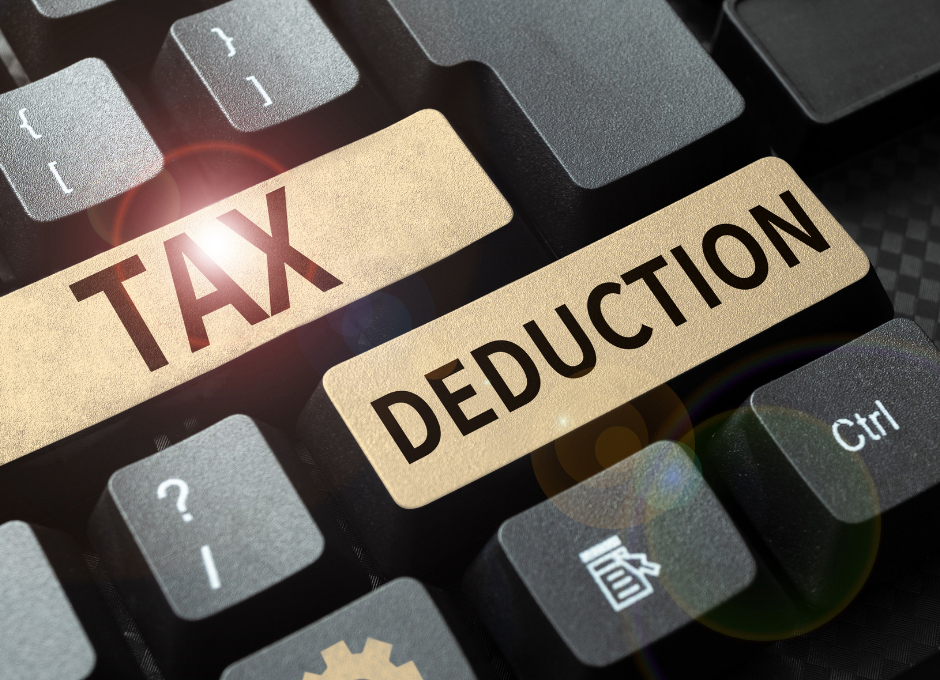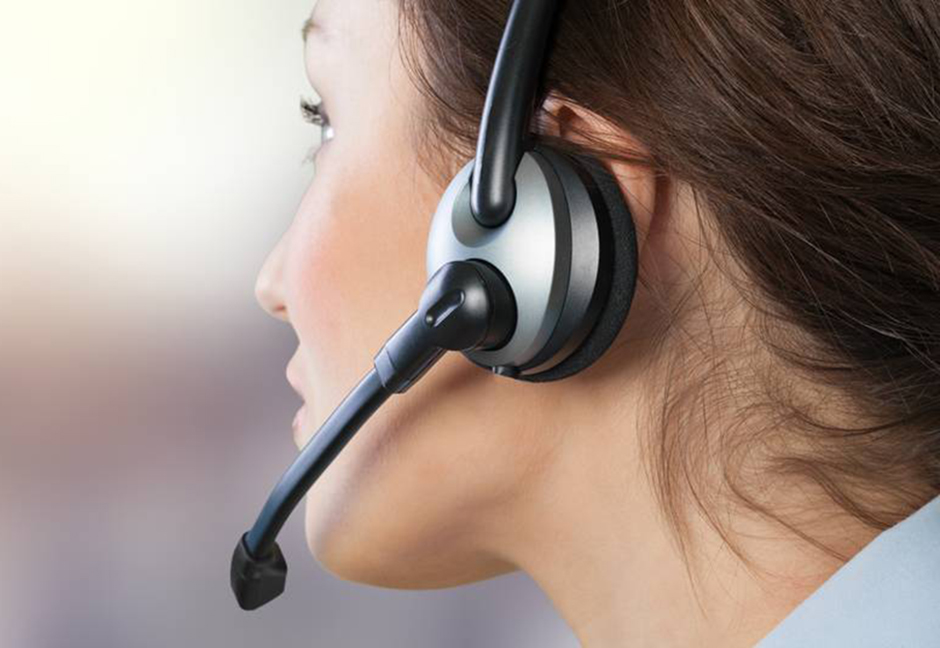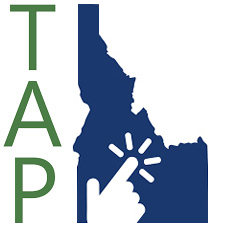Search Category: Income Tax
Parental Choice Tax Credit and Advance Payment
The parental choice tax credit or advance payment could help some families cover the cost of qualifying education expenses for children who are in nonpublic school. You can receive up to $5,000 per eligible student, or up to $7,500 per eligible student with a qualifying disability.
You can’t claim the parental choice tax credit unless you apply for it and are awarded it. You must apply for and be awarded the advance payment.
Applying
See the State of Idaho’s My School Choice website for program details, eligibility, and how to apply.
Qualifying expenses
If you’re awarded the parental choice tax credit or advance payment, they could cover:
- Tuition for nonpublic school or a single curriculum that includes, at a minimum, the four core subjects of English language arts, mathematics, science, and social studies
- Tutoring or other qualifying expenses related to the four core subjects
We don’t have a specific list of all qualifying expenses, and we can’t prequalify your expenses.
Expenses must be both:
- Directly related to the education of the eligible student
- Reasonable and necessary to fulfil the requirements of the academic instruction
Examples
Examples of expenses that might qualify include:
- School tuition or fees that include English language arts, mathematics, science, and social studies (four core subjects), at a minimum
- A base curriculum that includes the four core subjects, at a minimum
- Textbooks for the four core subjects
- Tutoring for the four core subjects
- Courses associated with nationally standardized assessments
- Transportation
Examples of expenses that won’t qualify include:
- Expenses for anyone not qualified for the parental choice tax credit or advance payment
- Extracurricular and nonacademic activities outside of the four core subjects
- Homeschool academic instruction that a parent provides
- Dual-credit courses for college classes taken in high school
- Vacations
- Uniforms
- Big-screen televisions
- Gaming computers
- Vehicles
- Entertainment
If you receive an award
We’ll notify you by April 15, 2026, if you’ll receive a parental choice tax credit or an advance payment. No one is guaranteed to get either.
- For the parental choice tax credit, you’ll have submitted receipts for expenses paid in 2025 when you applied. If you receive the award, you’ll put that amount on your 2025 Idaho Form 40, Individual Income Tax Return.
The filing deadline for 2025 tax returns is April 15, 2026. We recommend you file your return anyway, even if you think you might be awarded the parental choice tax credit, to avoid any potential penalty and interest. If you receive the parental choice tax credit, you can file an amended return.
- For the advance payment, save receipts for expenses you pay in 2026. You must provide those receipts to prove that you spent the money you received on qualifying expenses in 2026. You must repay any money spent on nonqualifying expenses or on qualifying expenses without proper receipts. You’ll do this through a reconciliation process that we’ll roll out later in 2026.
Money spent outside the law
You must repay any money you receive from the parental choice tax credit or advance payment that you spend outside the provisions of the law. A financial penalty and interest might apply.
Willfully providing false information to obtain funds from this program is considered tax fraud. Civil and criminal penalties — up to felony charges — might apply.
Laws and rules
Idaho Code, section 63-3029N, law regarding the Idaho Parental Choice Tax Credit program
Certain Business Income Tax Guides
Affected Business Entity Payment of Business Income Tax
Tax Update for Summer 2024
Welcome to the Summer 2024 Tax Update business community newsletter. This edition features articles about new tax laws, lower credit card and e-check payment fees, expanded call center hours, our free educational webinars, and Taxpayer Access Point (TAP) guidance.

New tax laws – What you need to know
The 2024 Idaho Legislature passed tax laws that lowered income tax rates, increased school facilities funding, clarified sales tax exemptions for structures and equipment used to store small grains, and more. For additional details about the legislation highlighted in this newsletter, visit the link to each bill below.
Income tax
Idaho conforms to the Internal Revenue Code for 2024
Idaho conforms to the Internal Revenue Code (IRC) as of January 1, 2024, with the following exception:
- IRC section 85, Unemployment Compensation, is applied as in effect on January 1, 2020.
House Bill 385 – Effective January 1, 2024
Changes to Idaho’s tax rate
Idaho’s tax rate is now 5.695% for all taxpayers. For individuals, the rate applies to taxable income over:
- $2,500 if you’re filing single
- $5,000 if you’re filing jointly
The base amounts of $2,500 and $5,000 are indexed for inflation. Since 1998, the Tax Commission has adjusted the income tax thresholds each year to account for inflation.
House Bill 521 – Effective January 1, 2024

Income earned on an American Indian reservation
Income earned by a nonresident who’s a registered member of an American Indian tribe isn’t subject to Idaho taxes when the member works on an Idaho Indian reservation. Income the member earns in Idaho outside a reservation is subject to Idaho taxes.
Note: This isn’t a new policy; it codifies the state’s understanding of existing federal law.
House Bill 410 – Effective January 1, 2024

Deduction/credit burden of proof
Evidence that shows a taxpayer’s right to claim a tax deduction or credit includes a credit card statement (or other document from a financial institution) along with a notarized, sworn statement that an expenditure was for an identified deduction purpose.
House Bill 488 – Effective July 1, 2024
Property tax
Homestead exemption penalties
Taxpayers claiming more than one homestead exemption for property tax are subject to a penalty. The first violation is a financial penalty; subsequent violations are misdemeanors.
The Tax Commission may share information with the Secretary of State to determine that a taxpayer is voting or running for office based only on the location of their primary residence.
House Bill 449 – Effective July 1, 2024

Sales tax
Grain bin exemption

The structures and equipment used to store small grains are exempt from sales taxes. These items include: grain bin structures, augers, dryers, fans, sweep augers, and other equipment and supplies used in quality control functions to prepare a crop for storage in a grain bin.
House Bill 751 – Effective January 1, 2024
School facilities funding
This law increases funding from existing sales tax revenue for school facilities projects.
House Bill 521 – Effective July 1, 2024

Other
Cash payments to state agencies

Cash is an acceptable payment method in Idaho state government. Any official, department, board, commission, or agency that accepts payments must accept cash without charging a fee.
Note: The Tax Commission has always accepted cash and has never charged fees for cash payments.
House Bill 417 – Effective July 1, 2024
Interest charged on tax deficiencies
The law changes how interest accrues during an audit.
House Bill 445 – Effective January 1, 2024
Lower credit card and e-check fees

E-payments are a convenient way to make tax payments and are now more cost-effective. As of May 1, 2024, processing fees are lower for e-checks, credit cards, and debit cards. The e-check fee is now $1, down from $5. The debit and credit card fees dropped from 3% to 2.5%. To learn more about e-payments or to make a payment, go to tax.idaho.gov/e-pay.
Expanded call center hours
We’ve expanded our call center hours in our ongoing efforts to provide excellent customer service. The new hours are 8 a.m. to 5:30 p.m. Mountain Time (7 a.m. to 4:30 p.m. Pacific Time) Monday through Friday.
For general tax questions, call (208) 334-7660 in the Boise area or toll free at (800) 972-7660. Deaf and hard of hearing callers can call the Idaho Relay Service at (800) 377-3529. We close the call center for training on the 2nd and 4th Wednesdays of the month from 8 a.m. to 9:30 a.m. Mountain Time.
We’re committed to protecting you. We’ll share your sensitive information only with you or your legal representative. So, we’ll ask for information to verify your identity when you call us.

Free tax and business webinars
Did you know the Idaho State Tax Commission offers free webinars on various tax-related topics? If you’re self-employed, a bookkeeper seeking guidance, or a new business owner looking for information about tax permits, we can help.

Join our free webinars to learn about these topics and more:
- Tax and business basics for small businesses.
- Tax and business basics for self-employed.
- Taxpayer Access Point (TAP) tips and tricks. (1 hour)
- The Idaho Business Registration (IBR) process for business permits. (1 hour)
- NEW: Open question-and-answer forum for business and tax-related questions with our experts. (1 hour)
Check out the events calendar on our website to see the webinar schedule. For more information and to sign up for a webinar, visit the Tax Commission’s Eventbrite page.
Taxpayer Access Point (TAP) guidance
Taxpayer Access Point (TAP) is a free, secure online platform for taxpayers who frequently file Idaho tax returns and make payments on certain tax types. Businesses are the primary users of TAP.
Why you should get a TAP account
Using TAP allows your business to electronically file returns for most permit-based taxes, make online payments, get tax due-date reminders, and schedule tax payments up to 90 days in advance. You can also print copies of filed returns, print certain letters we send you, and view your account history. You can’t e-file income tax returns through TAP.
Services that don’t require a TAP account.
You don’t need a TAP account to:
- Get the status of your income tax refund
- Verify your identity
- Pay through the Quick Pay tool
- Respond to our inquiry letters
- Request a Payment Plan (if you’ve received a letter from us in the past two years)
- Apply for property tax relief
- Request a temporary seller’s permit and register for an upcoming event

How do I get a TAP account?
Follow these instructions to register for a TAP account. The registration and approval process takes about 10 to 12 days.
Before registering for a TAP account, you’ll need a tax account with the Tax Commission. If you’re a business that wants to file and pay taxes through TAP, you first need a permit (account) for that tax type. If you’re new to Idaho, you must wait until we’ve received and processed your first income tax return before you register.
Learn more about TAP with our self-help tools in TAP Help.
Watch our videos, follow us on social media
Can I request a payment plan? What are estimated payments? How do I get copies of my tax records? Find those answers and more when you watch our videos.
Subscribe to idahostatetax on YouTube to see the latest videos or check out our recorded webinars.
You can also follow idahotax on Facebook, Instagram, Twitter, and LinkedIn.
Stay informed
Sign up to receive our e-newsletters for general audiences or tax professionals.
Nonprofit Guides
Nonprofits and
Income Tax
Nonprofits and
Sales Tax
Individual Income Tax Filing and Paying
- An Idaho resident
- A part-year Idaho resident with income from Idaho sources or income earned while an Idaho resident
- A nonresident of Idaho with income from Idaho sources
Due date
File your return and pay any tax due on or before April 15, 2025, for the 2024 calendar year. Please contact us if you forgot to file a tax return.
Filing
You can choose to file electronically, saving time and postage. If you decide to e-file both your federal and state returns, you must use the same tax software to do so.
- These tax software packages enable you to prepare and electronically file your federal and Idaho individual income tax forms for free if you meet certain criteria.
- Here are other tax software packages that you can use: E-file Income Taxes.
- Taxpayer Access Point (TAP) doesn’t support electronic filing of income tax returns.
If you don’t qualify for free filing, or don’t want to use tax software:
Extension
A valid extension means you can avoid a penalty for filing late. There aren’t any extensions allowing you to pay late. You’ll owe interest on any payments made after the original due date. Need more time to file? See if you qualify. Read our guide on valid extensions for filing.
Paying
You can pay income tax you owe in one of these ways:
- Pay securely online from your bank account (free) or using a credit card (fee) through Quick Pay.
- Pay from your bank account (free) or using a credit card (fee) through TAP, if you have a TAP account. (You can’t file income tax returns in TAP.)
- Pay by check through the mail or in person. If you’re mailing a payment without its return, complete and attach this form: Form ID-VP – Income Tax Voucher Payment.
- Pay in person — including with cash — at one of our locations.
If you can’t pay what’s due
We always recommend paying the total amount by the due date if you can. Paying in full prevents your owing interest and possibly a penalty. If you can’t pay in full by the due date:
- File as soon as possible.
- See if you can request a payment plan.
- Pay what you can before the due date to reduce the interest you’ll owe. An easy way to make one-off payments from your bank account is through the ACH debit option in Quick Pay. (See other payment methods on the E-pay page.)
- Check and change your income tax withholding with your employer to reduce or eliminate what you’ll owe next year.
Refunds
For information about your refund, see the Tax Refund page.
Amended returns
Double-check your tax return for accuracy before you mail it or submit it through an online e-filing service. You can correct a return you’ve already filed by filing an amended return. Please note that amended returns are processed after all original returns have been processed. Expect delays.
To amend a return, follow these steps:
- Check which return you originally filed – Form 40 or Form 43. Download a blank copy.
- Check the AMENDED box at the top of the blank return.
- Complete the return as it should have been filled out.
- Attach an explanation of why you’re amending the return.
- If you need to, include copies of forms or schedules missing from the original filing.
- If you amended your federal return, attach a copy of Form 1040X.
- Mail your amended return, any supporting documentation, and any payment due to: Idaho State Tax Commission, PO Box 56, Boise ID 83756-0056.
Idaho Retirement Benefits Deduction
Idaho allows limited deductions for certain pensions. Even if you qualify, you generally can’t deduct the full amount or your benefits. Each year the state recalculates the maximum allowed.
For more information beyond this page, see the instructions for individual income tax, Part B – Subtractions. Look for the subsection for Retirement Benefits Deduction for Qualified Retirement Benefits. This subsection also includes definitions, such as what “disabled” means.
Federal pensions and the deduction
Some federal pensions might qualify for the deduction from Idaho income tax. You as the pensioner might qualify if all of these are true:
- You’re at least 65, or at least 62 and disabled.
- You’re filing jointly if you’re married.
- Your pension is one of these:
- From the U.S. military.
- Under the Foreign Service Retirement and Disability System (FSRDS).
- Under the Civil Service Retirement System (CSRS). See the instructions to determine if your pension is from CSRS (not the Federal Employees Retirement System, or FERS).
Surviving spouse benefits: You might qualify for the deduction if you receive your deceased spouse’s federal pension from one of the sources listed above. You can’t have remarried, and you must be at least 65, or at least 62 and disabled.
Idaho pensions and the deduction
Only a very few Idaho pensions qualify for the deduction from Idaho income tax. You as the pensioner might qualify if all of these are true:
- You’re at least 65, or at least 62 and disabled.
- You’re filing jointly if you’re married.
- Your pension is one of these:
- From the Firefighters Retirement Fund (FRF) that the Public Employee Retirement System of Idaho (PERSI) administers.
- Benefits for a retired police officer of an Idaho city for Idaho employment not included in the federal Social Security retirement system. PERSI administers the benefits.
- Benefits from a policemen’s retirement fund for retired police officers of an Idaho city. The fund must no longer admit new members as of January 1, 2012. An Idaho city or PERSI must administer the fund.
See the instructions or contact your plan administrator if you have questions about qualifying.
Surviving spouse benefits: You might qualify for the deduction if you receive your deceased spouse’s Idaho pension from one of the sources listed above. You can’t have remarried, and you must be at least 65, or at least 62 and disabled.
Tax Update for Summer 2023
Welcome to the Summer 2023 issue of Tax Update — our business community newsletter. This edition features articles about new tax laws, taxable sales for recreation and admissions, and our new callback feature.

New tax laws – What you need to know
The 2023 Idaho Legislature passed tax laws providing property tax reduction, capping the cigar tax, increasing the dependent care tax deduction, and more. Below are some highlights. For more details about the legislation, visit the Legislature’s website.
Income tax
Idaho conforms to the Internal Revenue Code for 2023
Idaho conforms to the Internal Revenue Code (IRC) as of January 1, 2023, with the following exception:
- IRC section 85, Unemployment Compensation, is applied as in effect on January 1, 2020.
House Bill 21 – Effective January 1, 2023
Changes to Idaho’s tax rate
Idaho’s tax rate is now 5.8% for all taxpayers. For individuals, the rate applies to taxable income over:
- $4,489 if you’re filing single
- $8,978 if you’re filing jointly
House Bill 172 – Effective January 1, 2023
Dependent care tax deduction increased
The maximum individual tax deduction for dependent care is now $12,000 per year. Dependents include a taxpayer’s children under the age of 13, a dependent of a taxpayer with physical or mental limitations, and the spouse of a taxpayer with physical or mental limitations.
House Bill 288 – Effective January 1, 2023
Grocery credit increased in 2023
The grocery tax credit for eligible Idaho residents increased from $100 to $120 starting in tax year 2023. The credit for Idahoans who are 65 and older increased from $120 to $140.
House Bill 509 – Effective March 25, 2022

Product tax
Cigar tax cap

The tax rate for cigars is 40% of the wholesale price or 50 cents per cigar, whichever is lower. The tax rate for all other tobacco products will continue at 40% of the wholesale price.
House Bill 330 – Effective July 1, 2023
Property tax
Property tax relief
All property tax taxpayers in Idaho will receive property tax relief in 2023 and beyond from state funds. More people also will qualify for Idaho’s Property Tax Reduction program, also known as the Circuit Breaker Program, because of relaxed legislative requirements.
The law’s first year could provide up to $355 million in property tax relief. In the second and third years, the law could provide about $110 million to reduce property taxes for homeowners, roughly $100 million to reduce property taxes for all property tax taxpayers, and about $100 million could be distributed to school districts based on average daily attendance.

The effects on individual property taxes will vary depending on the existence of certain school levies, taxing district budgets being set in the next few months, and changes in property values. Specific reductions will be determined this fall and shown on tax bills sent in late November.
House Bill 292 – Effective Various
Reminder to retailers about sales tax for recreation and admissions
If you charge your customers a fee to participate in recreational activities, you must collect sales tax on the fee. Some examples include but aren’t limited to sports leagues, youth sports camps, golfing fees and memberships, bowling, swimming pools, axe throwing, escape rooms, horseback riding, ziplining, and bouncy equipment.

An exemption from sales tax applies if all of the following are true:
- You’re a 501(c)(3) nonprofit that’s organizing the event.
- The event isn’t predominately recreational or commercial.
- Any entertainment included is minimal.
- You’ve paid sales tax on food and supplies used during the event.
Website gets an upgrade
The Tax Commission redesigned its website, tax.idaho.gov, in December to make it easier for taxpayers to use.
In addition to a new look, the site has a mobile-first design, so it works well with mobile devices as well as desktop computers. Other enhancements include a robust search feature and compliance with the Americans with Disabilities Act to improve the experience for those with disabilities.
New callback feature for call center
The Tax Commission has added a courtesy callback feature to its call center. The feature allows customers to keep their place in line when they call for tax help without having to wait on hold.
The callback feature gives customers the option of providing their phone number to receive a call from us. Wait times have continued to increase as more individuals and businesses move to Idaho.

Customers who choose the callback feature must be prepared to take the call because the system can’t call back multiple times. If customers don’t answer the callback, they must call again to get back in line.
The call center numbers for the Tax Commission are (208) 334-7660 in the Boise area or toll free at (800) 972-7660.
Watch our videos, follow us on social media
Can I request a payment plan? What is Taxpayer Access Point (TAP), and how do I use it? Find the answers when you watch our videos.
Subscribe to idahostatetax on YouTube to see the latest videos or check out our recorded webinars.
You can also follow us as idahotax on Facebook, Instagram, Twitter, and LinkedIn.
Stay informed
Sign up to receive our e-newsletters for general audiences or tax professionals.
